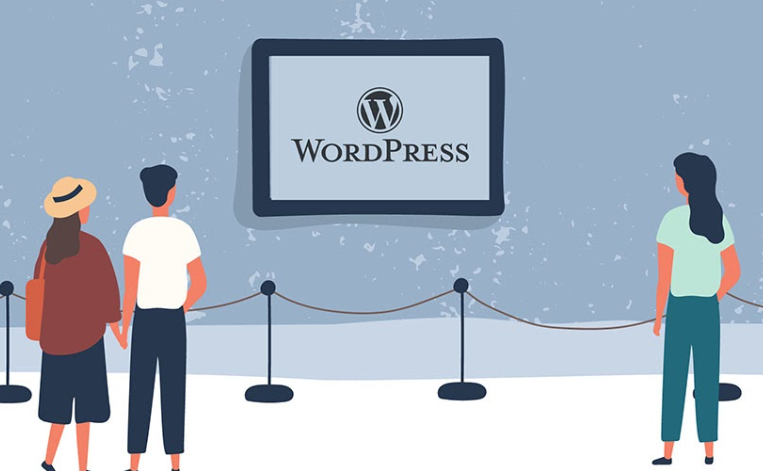WordPress, the most popular content management system (CMS) on the web, and PHP, the server-side scripting language that powers it, have transformed the way websites are created and managed. In this comprehensive guide, we’ll explore the intertwined history, the dynamic relationship, and the impact of WordPress and PHP development on the ever-expanding online landscape.

The Genesis of WordPress and PHP
- Birth of PHP: PHP, initially developed by Rasmus Lerdorf in 1994, was created to maintain his personal homepage. It quickly evolved into a robust server-side scripting language for web development.
- WordPress Emerges: WordPress was born in 2003, as an evolution of the B2/cafelog platform, focusing on ease of use, flexibility, and customization.
- Open-Source Nature: Both PHP and WordPress are open-source, fostering a collaborative community of developers and contributors.
- Dynamic Duo: WordPress adopted PHP as its primary server-side scripting language, leading to a harmonious partnership.
The Role of PHP in WordPress Development
- Dynamic Content: PHP enables WordPress to generate dynamic web pages, process forms, and interact with databases, resulting in interactive websites.
- Themes and Plugins: PHP allows developers to create custom themes and plugins, extending WordPress’s functionality and appearance.
- Database Integration: PHP and MySQL work seamlessly to store, retrieve, and manage content, providing the backbone for WordPress websites.
- Customization: PHP’s flexibility empowers developers to craft tailored solutions for diverse needs.
The Evolution of WordPress: From Blogging to Full-Fledged CMS
- Blogging Roots: WordPress began as a blogging platform but quickly evolved to handle a wide range of website types.
- Themes and Templates: The introduction of themes and templates allowed users to customize the look and feel of their websites.
- Plugin Ecosystem: An extensive plugin ecosystem provides nearly limitless functionality, from SEO optimization to e-commerce.
- Gutenberg Block Editor: The introduction of the block editor in WordPress 5.0 revolutionized content creation, making it more intuitive and flexible.
Impact on Web Development
- Accessibility: The user-friendly nature of WordPress democratizes website creation, allowing individuals and businesses to establish an online presence without extensive coding knowledge.
- Community Engagement: Both PHP and WordPress have vibrant communities that foster innovation and support for developers, users, and contributors.
- E-commerce: WordPress’s WooCommerce plugin, powered by PHP, has become a leading solution for e-commerce websites.
- Content Management: WordPress’s role as a CMS simplifies content management for organizations, enhancing efficiency and workflow.
Challenges and Security Concerns
- Security: WordPress websites can be vulnerable to security breaches, emphasizing the importance of regular updates and security measures.
- Plugin Quality: The extensive plugin ecosystem includes a wide range of quality, requiring discernment when choosing plugins for a website.
- Performance: Poorly coded plugins or themes can impact website performance, emphasizing the need for optimization.
- Maintenance: Regular maintenance, updates, and backups are essential to keep WordPress websites running smoothly.
The Future of WordPress and PHP Development
- Performance Optimization: Ongoing improvements in PHP and WordPress aim to enhance performance and speed.
- Accessibility: Continued efforts to make web development more accessible for all users.
- Sustainability: Focus on sustainability and green web hosting to reduce the environmental impact of websites.
- Headless WordPress: The decoupling of the frontend and backend of WordPress, allowing for more versatile and interactive web experiences.
WordPress and PHP in a Changing Web Landscape
- Competition: WordPress faces competition from other CMS platforms, like Drupal and Joomla, and PHP is challenged by alternative scripting languages.
- Adaptation: Both WordPress and PHP must adapt to the evolving web, including mobile devices and emerging technologies.
- Global Reach: WordPress has become a global platform, available in numerous languages and cultures.
- Business Ecosystem: WordPress has led to a thriving business ecosystem, including web hosting, theme and plugin development, and maintenance services.
Conclusion
The symbiotic relationship between WordPress and PHP has shaped the web development landscape, empowering countless individuals and organizations to establish an online presence. From its blogging origins, WordPress has evolved into a versatile and powerful CMS, with the support of the PHP scripting language. While both face challenges, including security concerns and competition, their future is marked by ongoing innovation, sustainability, and accessibility. As the web continues to evolve, WordPress and PHP development will remain central to the digital experience, supporting businesses, content creators, and online communities across the globe.





